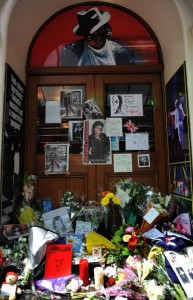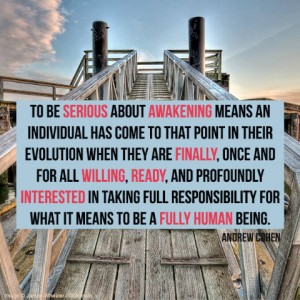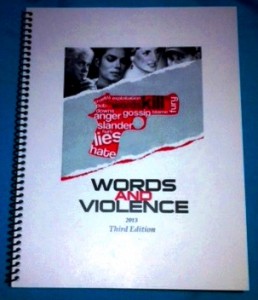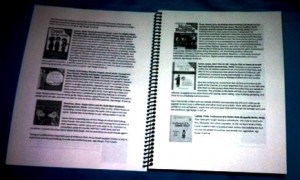 When the injury is colossal, the pain is deep, the woundedness leaves in its wake, an aching that can’t be described. One so aching, holds onto sorrow, sometimes as a mistaken way to sooth self or an excuse to not act, or as a weapon in one’s arsenal against a life seeming unjust. Healing then, is delayed or never begins.
When the injury is colossal, the pain is deep, the woundedness leaves in its wake, an aching that can’t be described. One so aching, holds onto sorrow, sometimes as a mistaken way to sooth self or an excuse to not act, or as a weapon in one’s arsenal against a life seeming unjust. Healing then, is delayed or never begins.
It is hard to forgive. Some things seem yes… unforgiveable. But forgiving is not for the other person, it is for the self. It is hard to allow the brokenness to live inside us, to fully feel its sting, embrace the heartbreak so we employ resentment in order to not fully feel the overwhelming sorrow. Holding onto the wound with anger and resentment doesn’t exact revenge or damage the “other;” it harms the self. And because it is so toxic, consciously or not, we push it out and onto other people.
Resentment initially seems easier. And we feel justified in our pain when it is insulated with resentment. It appears easier to hold fast to it and to use it to want, demand or exact revenge. Wanting revenge, and even exacting it, while it seems warranted and justified, doesn’t heal anyone. Not the one it is aimed at, and certainly not the one who holds its poison in their body. Resentment, in fact, it makes the other more defensive, more sure of their position.
Hurt people hurt people. Wounded people wound other people. People who harbor self-loathing, whether conscious or not, lash out at others. They have to find others to blame or others to project onto and to deem inferior to self. They need a target for their projections (undesirable or dark things that go unacknowledged in self heaped on another in order to distance self from one’s own shadow.)
Without an open door to confession, the guilty must hold tightly in darkness and unconsciousness, their own suspicions about themselves (as a lost soul) and their guilt and contribution in the spread of harm or evil. They can’t bear to look at their own ugliness. And when it is pointed out to them, they must push against the accusers and against acknowledging it to avoid and survive. The guilty push down their suspicions about their own guilt or contribution to the spread of harm or evil, and then push it out and into the already toxic ecosystem that is built up from stirring in a little evil here and there. (Oh yes, the guilty know somewhere inside that they are guilty; the insides always know.) A person may appear indifferent or defensive but it covers fear and self loathing. Besides, when you’re already a goner, what’s a little more evil? And a little more? So attacking is not effective for it makes a perpetrator more defensive.
And that’s true of all of us. We all have those defense mechanisms of self denial, projection and repression into the unconscious or suppression of our guilt to the subconscious. We all do things we regret. We all have that dark shadow as well as the bright, and it’s either already in play or waiting to pounce. The shadow is our woundedness, a collection of our injuries, insults, our hurts, an d the ways in which we feel unloved. When we feel unloved and inadequate, the more someone is beloved, the more our own unloved self becomes apparent to us and demands our attention. The more the unloved self is fed, the more destructive it becomes. The answer is to take responsibility for all of it. Not just the shadow of self, but the world’s shadow. When you take responsibility for all the hurt, harm, evil and shadow in the world, you gain power. And the power to do something about it. Begin with self and branch out from there. Then do both at the same time– the micro and macro worlds.
d the ways in which we feel unloved. When we feel unloved and inadequate, the more someone is beloved, the more our own unloved self becomes apparent to us and demands our attention. The more the unloved self is fed, the more destructive it becomes. The answer is to take responsibility for all of it. Not just the shadow of self, but the world’s shadow. When you take responsibility for all the hurt, harm, evil and shadow in the world, you gain power. And the power to do something about it. Begin with self and branch out from there. Then do both at the same time– the micro and macro worlds.
It’s not that our anger isn’t justified. People may indeed be guilty of deliberate harm. But a lot of it is not deliberate. Especially our own capacity to hurt others. It may not be part of our immediate awareness. But our job is to find out. Because, when we are unaware of our own capacity to harm, we attack— but attacking is not going to bring about a confession. Forgiveness might.
Attacking the methods, the result or the means and exposing the harm or evil perpetuated and released into the ecosystem, is a better idea than the poison of personal resentment. Making aware those who are ignorant, indifferent, or even complicit in the spread of harm or evil better educated about responsibility and stewardship is a win for everybody.
I have joined the Forgiveness Project with Desmond Tutu. Not because I am convinced about forgiving, or even capable of it. But because I want to examine forgiveness more closely, to understand it and how it is possible in some cases that seem unforgiveable. It want to know it, test it, try it out and see, not if it is effective on the other person, but if it makes me a better person.
The project launches today. want to join me?
Desmond Tutu invites you to:
The 30 Day Forgiveness Challenge: http://forgivenesschallenge.com/
All Donations currently are being used to publish the “Words and Violence” Compendium, a project with more than 600 pages of resources about bullying with words– from the playground to the media. The Compendia will be shared with schools, childrens’ programs, educators and other supporters.
“Words and Violence” studies the impact of words when used as weapons to promote violence.
The work is dedicated to Michael Jackson and Lady Diana Spencer.


